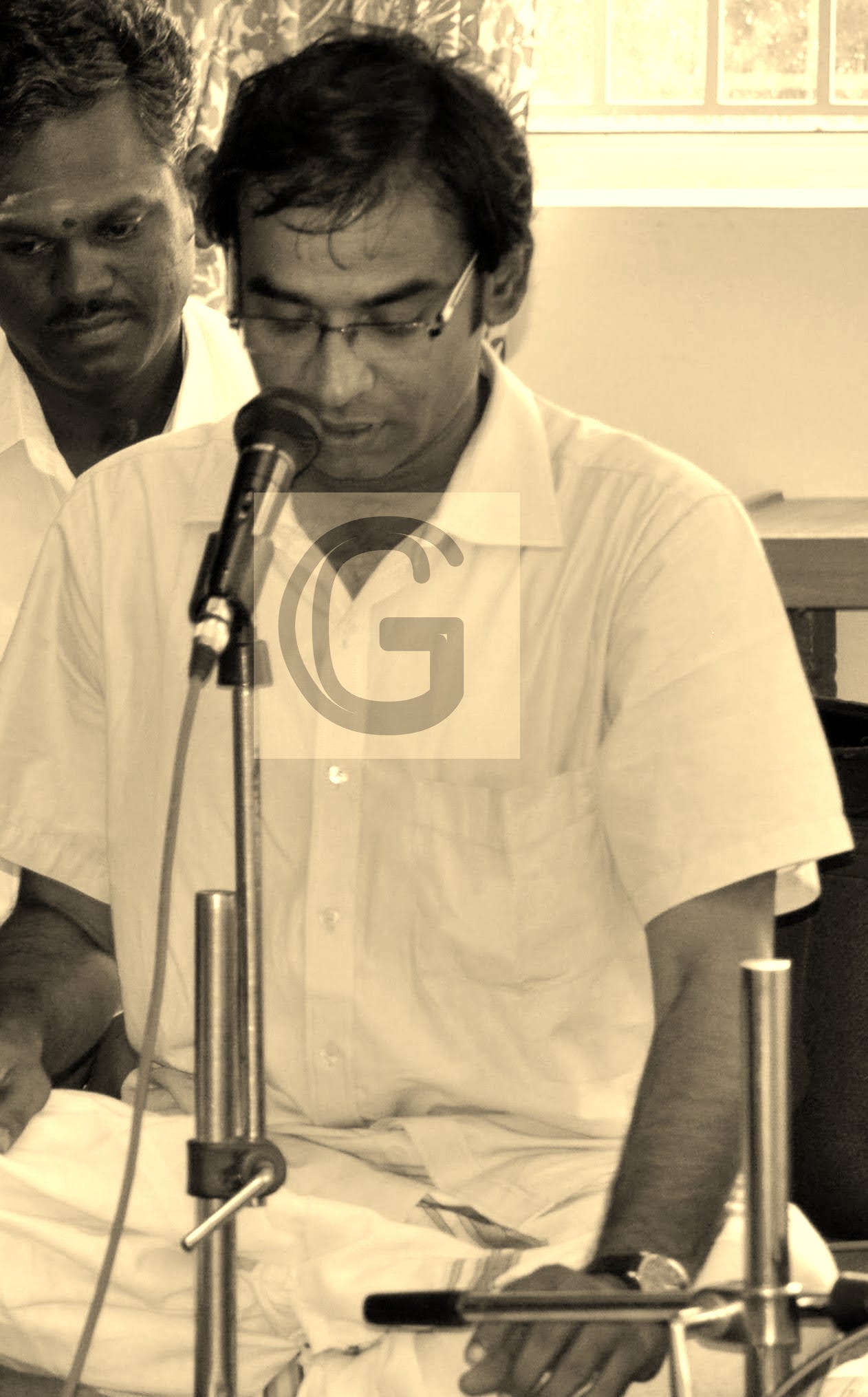Too Good to Be Real
Small town. Intercollege competition. Carnatic vocal—think South Indian classical music, centuries old, more rules, more nuance.
I’m on stage doing what’s called ‘Kalpana Swaram’—imagine jazz improvisation but with vocal cords, creating melodic phrases on the spot, weaving them through complex rhythmic cycles while maintaining perfect pitch relationships. It’s the moment in Carnatic music where you prove you’re not just a reproducer but a creator. Where memorization ends and musicianship begins. Carnatic tradition typically does not have the concept of ‘rehearsal’ at all.
I got third place.
Later, in the way small towns work—everyone knows everyone, gossip travels fast—one of the judges found me. Dance teacher, Carnatic background, the kind of person who can spot a missed microtone from across a concert hall.
“Gokul,” she said, “there was a disagreement among the judges about your performance. I had to convince them to give you third prize instead of second.”
My young ego, ready to be wounded.
“Your Kalpana Swaram was too good to be spontaneous. I thought you prepared it in advance.”
I stood there, stunned, then said: “This is the best prize you could give me.”
She looked insulted. But I meant it. She thought I was cheating because I was too good at being real.
“Am I that good? Really?!” I asked myself. Young man’s pride mixed with the absurdity of being penalized for excellence.
That moment has lived in my head for decades. Now, watching writers panic about AI, I finally understand why.
Even the composer Hector Berlioz concerned about valved trumpets in 1843—they’d make music too easy; composers would abuse them. But music got more interesting. Bad composers still wrote bad music, just faster. Good composers wrote things that were impossible before.
The complaint is always the same: the new tool will let fake artists pretend to be real ones.
But here’s what’s different this time: when everyone assumes good equals fake, real artists start performing incompetence.
Writers are now deliberately breaking their prose—adding errors, fragmenting sentences, destroying flow—to prove they’re human. Like I should have sung slightly worse to prove my improvisation was real. Someone was giving this advice to his readers on popular platform (AI topic). We are a generation who trust ‘hacks’ more than truth.
This isn’t regular imposter syndrome where you feel fake despite being real. This is inverted imposter syndrome: you make yourself worse to prove you’re genuine. Like you identify cars to prove you are human.
You spent years learning your craft. Now you’re staining them to pass the human test.
Think about what that means. The judge thought my improvisation was too polished to be spontaneous. In her world, real meant searching, stumbling, finding. My performance was too found, too confident, too clear.
But here’s what she didn’t understand: I’d been training for that moment for years under the strictest Guru in my locality—the kind where you’d be sick with dread before each class. Every note, every exercise, every lesson was preparation for that spontaneity. The improvisation was real. It just came from a preparation that it looked rehearsed.
This is what’s happening to writers now. Years of reading, writing, thinking, crafting—and when it comes out clear, people assume it’s artificial. The better you are at your craft, the more suspect you become.
So, you ‘humanize’ it—by writing worse.
In music, we’ve already been through this. When sample libraries became sophisticated, they included fret noise—the finger squeaks, breath sounds, chair creaks. Musicians paid extra for these “imperfections.”
But here’s what I would love writers to understand: we don’t use fret noise to prove we’re human. We use it because it sounds good. The finger squeak isn’t proof of life, it’s percussion. It serves the music.
Writers adding calculated errors to their prose aren’t adding fret noise. They’re adding damage. Fret noise enhances. Deliberate mistakes only serve anxiety.
Is a carpenter with power tools still a carpenter?
Wrong question. Here’s the right one: Can anyone with power tools build fine furniture?
Give me every tool in the workshop—router, table saw, laser level, nail gun. I still can’t build a chair. I don’t know where the joints should go. Can’t read wood grain. Don’t understand how humidity affects different wood.
The router doesn’t make someone a carpenter any more than Words make someone a writer or virtual instruments make someone a composer. (But I know how to use a router. Not chairs but built my acoustic panels. That is how I know everyone with a router is not a carpenter.)
An old man I knew carved dovetails (a kind of joinery that is strong and aesthetic) by hand. Took him three days. A router does it in three hours. Is the router carpenter more or less authentic? Neither—they’re just faster. The question is whether they know where the joint should go in the first place.
What VSTs Revealed
When Virtual Studio Technology arrived, forums exploded: “Everyone will become a composer! Real musicianship is dead!”
They were right about one thing: everyone did become a “composer.” The internet flooded with me-too music, derivative beats, formulaic arrangements. Just like AI is flooding the internet with prompt farmers—people generating content without understanding structure, rhetoric, or clarity.
But they were wrong about what mattered. Real composers used the same tools to create things that were impossible before. Ólafur Arnalds collaborates with software teams. Jacob Collier builds harmonies that would require five orchestras.
The tools didn’t create more composers. They revealed who was always a composer trapped without tools, and who was just someone with access to tools.
VSTs made music accessible. AI makes writing accessible. The flood is real. But accessibility doesn’t erase craft—it just makes craft more obvious by contrast.
The Acid Test
Does your piece need to exist? Could anyone else have written it? Does it say something only you could say?
My Kalpana Swaram wasn’t special because it was spontaneous. It was special because it was mine.
That’s the acid test. Not whether a detector thinks you’re human. Whether your work carries something only you could bring.

I watched the movie Grave of the Fireflies with my kid sitting beside me. There’s a moment—a fruit drop tin. Just a tin. Nothing special about it. But I was in tears. Not because Ghibli Studio animation was as realistic as The Jurassic Park.
Because someone wrote that story so well that a piece of metal became unbearable. Someone understood loss and childhood and war and innocence deeply enough to make me feel it through a tin of candy.
That’s craft. That’s what can’t be faked, regardless of tools. A writer made me cry. Not an AI. Not a prompt. A writer who knew exactly where the joints should go.
The System Has Lost the Plot
A writer submits manuscript. AI detector: “This is 57.7 % human.”
Detector asks: “Do you want to me to humanize it?”
What does that even mean?



